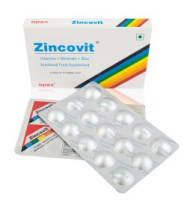USED FOR:
Allergic disorders
Bacterial infections
Severe allergic reaction
COMPOSITION:
Betamethasone (NA)
Gentamicin (NA)
Therapeutic Uses:
respiratory
ophthal otologicals

No interaction found

WEIGH RISKS VS BENEFITS
Genticyn B Eye Drop is unsafe to use during pregnancy.There is positive evidence of human fetal risk, but the benefits from use in pregnant women may be acceptable despite the risk, for example in life-threatening situations. Please consult your doctor.

Genticyn B Eye Drop is probably safe to use during lactation. Limited human data suggests that the drug does not represent a significant risk to the baby.

Genticyn B Eye Drop may cause side effects which could affect your ability to drive.

Genticyn B Eye Drop is probably safe to use in patients with kidney disease. Limited data available suggests that dose adjustment of Genticyn B Eye Drop may not be needed in these patients. Please consult your doctor.Regular monitoring of kidney function test may be advised while you are taking this medicine.

There is limited information available on the use of Genticyn B Eye Drop in patients with liver disease. Please consult your doctor.
Uses of Betamethasone
Betamethasone is used in the treatment of allergic disorders, severe allergic reaction, asthma, cancer, rheumatic disorder, skin disorders and nephrotic syndrome.
How to use Betamethasone
This medicine is for external use only.Take it in the dose and duration as advised by your doctor. Check the label for directions before use. Hold the dropper close to the eye/ear without touching it. Gently squeeze the dropper and place the medicine inside the lower eyelid or ear. Wipe off extra liquid.
How Genticyn B Eye Drop works
Betamethasone belongs to a group of medicines called corticosteroids which have anti-inflammatory and immune system suppressing activity. It prevents late phase allergic reactions by decreasing the chemicals responsible for the allergy..
Common Electrolyte imbalance, Redistribution/accumulation of body fat, Bone degradation, Increased risk of infection, Muscle disorders, Increased blood pressure, Altered bone growth, Skin scar, Behavioural changes, Cataract, Increased glucose level in blood.
Expert advice for Betamethasone
Take betamethasone tablet by mouth with food or milk to prevent stomach upset.Â
Do not take betamethasone tablets If you are allergic to betamethasone or any of the other ingredients of the tablet.
Do not take betamethasone tablets If you have an infection and have not yet started taking medicine (e.g. antibiotics) to treat it.
Do not use betamethasone cream if you are allergic to betamethasone or any of the other ingredients in this medicine.
Do not use the cream on your face repetitively for more than 5 days.
Do not use a large amount of cream continuously on large areas of the body since it can affect your hormones.
Excessive usage of cream in children might affect their growth and development.
Don’t apply the cream near your eyes.
Don’t swallow the cream, it is not meant for internal use.
Don’t use the cream under plaster or bandage.
Q. Is Betamethasone a steroid?
Betamethasone is a glucocorticoid and belongs to a group of medicines called steroids also known as corticosteroids. These are synthesized naturally in the body and help to maintain health and well-being. Two main classes of corticosteroids, glucocorticoids, and mineralocorticoids are involved in a wide range of physiologic processes, including stress response, immune response, and regulation of inflammation, carbohydrate metabolism, protein catabolism, blood electrolyte levels, and behavior.
Q. Is Betamethasone safe to use?
Betamethasone is safe to use when used for an indication in a dose as advised by your doctor.
Q. Does Betamethasone cause hair loss?
Betamethasone is not known to cause hair loss. Rather, it may cause an increase in body hair growth (especially in females) on long-term use. Talk to your doctor if you get excessive hair growth on your body while taking Betamethasone.
Q. Is Betamethasone an antibiotic?
Betamethasone is not an antibiotic. It's a glucocorticoid.
Q. Does Betamethasone work in retention edema?
Betamethasone is not used in retention edema. Glucocorticoids can cause fluid and salt retention as a side effect thereby causing edema or aggravating edema. However, Betamethasone does not normally cause retention of salt and water and the risk of inducing edema and hypertension is almost negligible.
Q. Is Betamethasone stronger than hydrocortisone?
Betamethasone and hydrocortisone belong to the same class of medications (i.e. corticosteroids) and produce almost similar pharmacological responses. The effect may vary based on the conditions and individual response. Always follow doctor’s advice regarding its use.
Q. Can I take Betamethasone with ibuprofen?
An increase in the risk of gastrointestinal bleeding may occur if non-steroidal anti-inflammatory drugs (NSAIDS) like ibuprofen are taken with corticosteroids. Talk to your doctor before taking Betamethasone with any NSAID.
Q. Does Betamethasone expire?
Yes, Betamethasone does expire. All the medicines come with an expiry date mentioned on the pack. You must check the expiry date before using any medicine.
Q. Does Betamethasone cause insomnia?
Betamethasone can cause insomnia (inability to sleep). Most people find that using this medicine for a short time causes no problems. Talk to your doctor if you experience insomnia while taking Betamethasone.
Q. Does Betamethasone cause weight gain?
Betamethasone can cause weight gain especially when high doses taken for a long time or repeated short courses are taken. Please consult your doctor if you experience weight gain after taking Betamethasone.
Q. Is Betamethasone a hydrocortisone?
Betamethasone is not a hydrocortisone. These are two different drugs which belong to the same group of medicines called steroids (also known as corticosteroids).
Q. Is Betamethasone over the counter?
Betamethasone is not an over the counter (OTC) medicine. It is available only when prescribed by a doctor.
Uses of Gentamicin
Gentamicin is used in the treatment of bacterial infections.
How to use Gentamicin
This medicine is for external use only.Take it in the dose and duration as advised by your doctor. Check the label for directions before use. Hold the dropper close to the eye/ear without touching it. Gently squeeze the dropper and place the medicine inside the lower eyelid or ear. Wipe off extra liquid.
How Genticyn B Eye Drop works
Gentamicin is an antibiotic. It kills bacteria by inhibiting synthesis of essential proteins, required by bacteria to carry out vital functions.
Common Nausea, Vomiting, Skin rash, Diarrhoea, Hearing loss, Balance disorder (loss of balance).
Expert advice for Gentamicin
It is given as a drip (intravenous infusion), as an injection directly into a vein or into a muscle; or as an ear or eye drops. Do not drive immediately after using gentamicin eyedrops because gentamicin in the eye may cause temporary  blurring of vision. Gentamicin should be used with caution in premature babies because of their kidney immaturity, and in elderly people. Gentamicin may cause damage to the kidneys and/or nerves. Consult your doctor for monitoring  Kidney function and drug levels in the blood  during treatment. Consult your doctor, if you experience hearing loss, dizziness, numbness, skin tingling, muscle twitching, or seizures which may be signs of nerve damage. Do not start or continue the gentamicin and consult your doctor:
If you have inflammation of the middle ear (otitis media), kidney or liver problem, open wound or damaged skin.
If you are pregnant or planning to become pregnant or breastfeeding.
If you experience itching, skin rashes, swelling of face, lips, throat or difficulty in breathing.
Q. Is Gentamicin a macrolide, steroid or a sulfa drug?
Gentamicin does not contain sulfa and is not a macrolide, or steroidal drug. It is a broad spectrum aminoglycoside
Q. Is Gentamicin nephrotoxic?
Yes, Gentamicin is a nephrotoxic drug. Please consult your doctor before taking the drug
Q. Is Gentamicin safe for babies?
Gentamicin is safe for babies if used at prescribed doses for the prescribed duration as advised by your doctor
Q. Does Gentamicin cause hearing loss or burn?
Yes Gentamicin can cause hearing loss if used inappropriately. It can cause burning of eyes
Q. Is Gentamicin used for pink eye?
Yes, Gentamicin is used in the treatment of pink eye (conjunctivitis). Please consult your doctor before use
Q. Does Gentamicin dialyze out?
Yes, Gentamicin is a dialyzable drug
Q. What organisms does Gentamicin cover?
Gentamicin is mainly effective against pseudomonas, escherichia, enterobacter, klebsiella, staphylococcus, salmonella, serratia, and shigella species but rarely effective against streptococci and methicillin-resistant Staphylococcus aureus (mrsa)
Q. Does it cover anaerobes?
It does not act against anaerobes.


 Genticyn B Eye Drop
Genticyn B Eye Drop  Bookmark
Bookmark





















